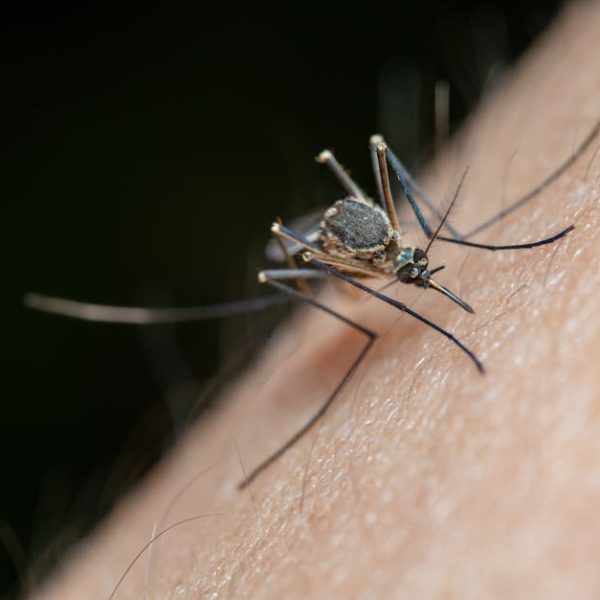Rats, often sneaky and always unwelcome, might find their way into your home or property. It’s important to identify their presence early and act swiftly to control their population. This guide provides practical tips for recognizing signs of a rat infestation, understanding rat behavior for better deterrence, applying proactive measures for rat control, using rat traps and baits effectively, and the importance of professional rat control services when necessary.
Recognizing the Signs of a Rat Infestation
Recognizing a rat infestation early is critical to keeping them under control. The first signs you may encounter are rat droppings which are typically small, dark pellets. You might also notice chew marks on furniture, cables or food packaging, a strong musky odor that wasn’t there before, or you may even hear scratching sounds in your walls or ceilings, especially at night when rats are most active.
Checklist:
- Look for rat droppings around the house
- Examine damages to food packaging or furniture
- Investigate strange odors
- Listen for unusual noises at night
Pro Tip: Remember to check hidden or rarely used spaces, like attics or basements, where rats might find refuge.
Understanding Rat Behavior Can Help In Deterrence
Once you are aware of a rat presence, understanding their behavior will assist in deterrence strategies. Rats typically seek food and water sources, warmth, and shelter for nesting. Knowing this helps determine why they have invaded your home in the first place. Minimizing their access to these attractions can go a long way in making your home less attractive to them.
Comparison:
| Species | Preferred Habitats |
|---|---|
| Black Rat | High places like roofs and attics |
| Brown Rat | Lower parts of buildings like basements and sewers |
Best practice: Secure your food storage areas, maintain a clean living space, and regularly remove potential nesting materials like discarded paper or fabric.
Proactive Measures for Rat Control
Preventing an infestation is always better and easier than dealing with one that’s already taken hold. Begin by sealing all potential entry points, especially holes and gaps in the walls, doors or windows. Regularly clean up food scraps and water residues as these are attractive food sources for rats. Also, carry out consistent disposal of potential nesting materials.
List:
- Seal all potential entry points
- Regularly clean food preparation and eating areas
- Dispose of potential nesting materials promptly and properly
Pro Tip: A thorough monthly home inspection can help catch signs of a rat infestation before it becomes severe.
Using Rat Traps and Baits Effectively
Trapping and baiting are common methods used in controlling rat populations, each with their strength and weaknesses. Rat traps can be an effective way of dealing with a small infestation, and come in various types; snap traps, glue traps, and live catch traps. Baiting, which involves using poisons, is effective for larger infestations but must be used with caution especially in homes with pets or small children.
Pros and Cons:
| Type | Pros | Cons |
|---|---|---|
| Snap Trap | Effective, reusable, easy to setup | Usually kills rats, can be dangerous to pets and children |
| Glue Trap | Simple to use, inexpensive | Can be less humane, ineffective with larger rats |
| Live Catch Trap | Humane, safe around pets and children | Rats can sometimes escape, caught rat must be released far from home |
| Baiting | Effective for larger infestations | May harm non-target animals or humans, rat carcasses can cause secondary problems |
Best practice: Place traps or baits along the walls where rats are likely to travel, in dark corners, or near possible food sources.
Importance of Professional Rat Control Services
When over-the-counter methods aren’t getting the job done, it may be time to call in professionals. Expert pest control services can quickly and efficiently handle a severe infestation, safely apply potent treatments, and offer advice to prevent recurring infestations.
List:
- Good reputation and positive reviews
- Licensed and insured
- Offers a guarantee of their work
- Uses safe and approved pest control methods
Pro Tip: Before the professional service visit, clear out any clutter in the infestation area and do not apply any treatments on your own as it can interfere with the work of the professionals.
By diligently using these strategies and keeping your property clean and well-maintained, you’ll be well-equipped to keep rats at bay. While the fight against rats might be tough, remaining persistent and proactive will help keep your home rat-free.
Key Takeaway:
- Recognize signs of a rat infestation early—such as droppings, chew marks, unusual odors or noises—to take prompt action.
- Understand the behavior of rats, including their preferred habitats and nesting needs, to make your home less attractive to them.
- Apply proactive measures, like sealing all potential entrances, maintaining sanitation, and removing potential nesting sites.
- Utilize rat traps and baits effectively to control the rat population; remember to compare their pros and cons for maximum effectiveness.
- Consider professional rat control services in case of severe infestations for efficient and safe treatment.
Remember, every home will have unique challenges when dealing with a rat infestation. However, by staying vigilant, understanding rat behavior, and maintaining a clean and pest-unfriendly environment, you can effectively control and prevent rat infestations. Share these helpful tips with others and explore our website for more insightful articles.
FAQs
Q: How quickly can a rat infestation develop in my home?
A: A rat infestation can grow rapidly, as female rats can reproduce every three weeks and can have up to seven rats per litter. Therefore, it’s critical to address signs of an infestation quickly.
Q: Are there natural remedies that deter rats from entering my home?
A: Natural remedies like essential oils (peppermint, citronella, eucalyptus) and some herbs (bay leaves, black pepper) can act as deterrents. However, these methods are not foolproof and should be used in conjunction with other preventive measures.
Q: Are rat droppings harmful to humans?
A: Yes, rat droppings can be harmful as they may carry diseases that can be transmitted to humans. Therefore, if you spot any droppings, handle them with care and properly sanitize the area.
Q: Do all rat species behave the same way?
A: No, different rat species have unique behaviors and preferred living areas. For instance, Black Rats commonly inhabit high areas such as roofs and attics, while Brown Rats prefer lower parts of buildings such as basements and sewers.
Q: Can DIY rat control measures replace professional pest control services?
A: While DIY measures can help mitigate small rat infestations, they may not be as effective for larger or more persistent infestations. In such cases, it’s advisable to seek professional pest control services for comprehensive eradication and preventive strategies.






